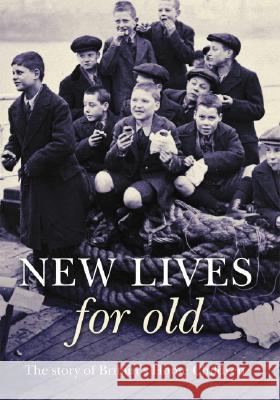New Lives for Old: The Story of Britain's Home Children » książka
New Lives for Old: The Story of Britain's Home Children
ISBN-13: 9781905615179 / Angielski / Twarda / 2007 / 224 str.
Over 100,000 children were sent across the seas to Canada between 1869 and the late 1930s. Thousands of others were dispatched to Australia as well as to New Zealand, South Africa and Rhodesia up to and even after the Second World War. These young migrants came from charitable organizations or children's homes, and were sent to find a better life as agricultural workers and servants, mechanics and skilled artisans. They were the superfluous thousands of Britain's cities, including workhouse paupers, reformatory inmates, children from industrial schools and those rescued from slums and the streets. Ranging from five- and six-year olds to teenagers, all were thrust into an alien world from which there was little chance of return. This compelling book tells the story of this controversial practice, from the accounts of those involved and the authentic records of the time. It traces the people behind the migrations exploring their beliefs and aspirations for the children in their care. It considers the roles that different organizations (including the Childrens Society, National Childrens Home and the Catholic Nugent Society Care Homes) played as well as the shipping lines that carried the children from Liverpool, Glasgow and other ports and the centers that received them overseas. Most importantly, it describes the experiences of the children themselves. Clear-sighted and objective, this is a gripping tale of the good, the bad and the ugly based on original documents from The National Archives and other sources. Above all, it celebrates those who welcomed the migrants and the children who managed, against all the odds, to adapt to their new lives.











